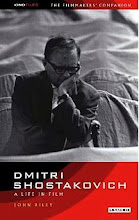Toccata Classics. TOCC0073
 The Soviet regime was always wary of nationalist feelings in the republics but, for Estonians, music was a buttress against Russification and Sovietisation. In the four years before gaining independence in 1991 more than a fifth of the population would regularly join the so-called Singing Revolution (laulev revolutsioon), defiantly congregating in the streets to perform forbidden songs.
The Soviet regime was always wary of nationalist feelings in the republics but, for Estonians, music was a buttress against Russification and Sovietisation. In the four years before gaining independence in 1991 more than a fifth of the population would regularly join the so-called Singing Revolution (laulev revolutsioon), defiantly congregating in the streets to perform forbidden songs.By then Veljo Tormis had been composing for over thirty years, concentrating on choral music and creating monumental cycles as well as smaller one-off songs.
Tormis was born in 1930, the eldest son of a farmer who was musically active in the local church in Vigala, Estonia, At 12 he entered Tallinn Conservatory but two years later the Soviets arrived and stopped the too-religiously-inflected organ class, so Tormis transferred to choral conducting, though the lack of churches restricted opportunities there as well. In 1951 he moved to Moscow to study with Vissarion Shebalin – to whom no doubt I’ll return – graduating in 1956.
The Soviets attitude to the Republics was always ambivalent: on one hand encouraging nationalism but at the same time taking care that it should not grow too strong. Tormis’ interest in Estonian folk music had been supported by Shebalin and, supporting himself by teaching in Tallinn, he went on to study the music of Orff and, after a visit to Hungary in 1962, Kodaly.
This climaxed with his first great cycle, Estonian Calendar Songs (Eesti kalendrilaulud) for mixed chorus (1967) and by 1969 was able to support himself, composing film scores, an opera and, overwhelmingly, choral music. Estonian national identity is closely bound to its choral traditions – amateur singing is endemic - hence Tormis’ importance and popularity.
Tormis himself said it best in setting the exiled Gustav Suits’ poem I’d Like to Sing a Song (Ühte laulu tahaks laulda)
I’d like to sing a song,
Just this only one:
That would rise a huge wave of sea
From the heart
You can hear (and buy) it here.
Titles like Bridges of Song (Laulusild) and Forgotten Peoples (Unustad rahvad) imply attempts to bind together misbegotten populations through music. The latter (formed of six sub-cycles) is particularly poignant as an epic memorial to endangered civilisations, such as the Izhorians and Votes. The Soviets responded by banning some of his works.
Tormis develops ancient Estonian regilaul, ‘runic’ songs, which might include imitations of natural sounds and something close to rhythmic speaking or shouting, with proto-minimalist rhythms. But Tormis avoids pared down Pärt-ishness: his musical roots are less religious than folk-pagan and very specifically Baltic-Finno-Ugrian: “It is not I who makes use of folk music: it is folk music that makes use of me.” As well as settings of modern Estonian poets, there are spells and incantations from the Finnish national epic, the Kalevala, and the Estonian equivalent, the Kalevipoeg.
Tormis creates a vast range of colours and textures and a huge dynamic range: the epic Curse Upon Iron (Ruaa needmine) is the highlight of the disc, running the gamut from whispering to shouting, by way of uncanny choral glissandos. You’ll have to turn up the volume for the quiet bits, but prepare to be blasted out of your chair a few minutes later. The Bishop and the Pagan (Piispa ja pakana) sets chant-like sections against, freer, more irregular music to tell both sides of the story of a 12th-century British missionary martyr. Beside these 10-minute mini-epics are catchy, witty and thrilling little pieces like An Aboriginal Song (Pärimaalase lauluke) and Incantation for a Stormy Sea (Incantatio maris aestuosi).
Tormis’ music is simultaneously ancient and newly minted, and the Svanholm Singers under Sofia Söderberg Eberhard hurl themselves into it with fantastic gusto. Tormis himself joins in, playing the shaman drum in two songs and the anvil in another, while counter-tenor Stefan Engström also does a turn on log drums. Along with some whistling, these sounds make the disc even more atmospheric.
Tormis isn’t a new name (for those in the know) but, though there have been several CDs of his music, he isn’t as widely known as his compatriot Pärt. Toccata Classics’ excellent selection, including premieres of a couple of revised pieces, is a welcome push in that direction.
Fans of choral music, and anyone with a taste for Kodaly, Orff (the insistent Musica Poetica from his Schulwerk was used in Malick’s film Badlands) or Bartók’s Mikrokosmos shouldn’t wait.









